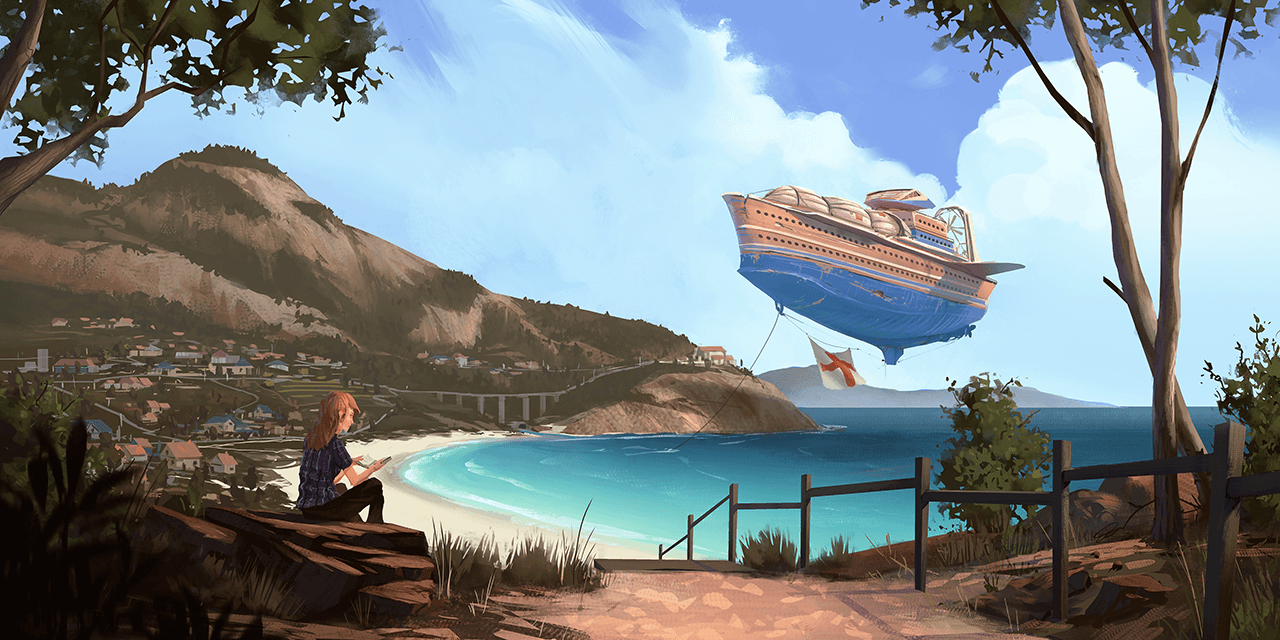Trending
Opinion: How will Project 2025 impact game developers?
The Heritage Foundation's manifesto for the possible next administration could do great harm to many, including large portions of the game development community.
On what I've been doing in the five years since I last posted, and my new project: Wayward Strand - a real-time story about a teenage girl who explores and airborne hospital and gets to know the patients within.

So it's been a little while since my last Gamasutra blog post. Okay, a long while. Long enough for the image links to atrophy. Five years. Anyway. In the interim I:
Led development on Catapult King, a mobile game released in 2012 that reached #1 in over 100 countries and has been downloaded over 30 million times.
Began working on Armello when it was in an alpha state, and served as lead developer through beta and early access to a full release on Steam and PS4.
Not bad for five years!
By the end of 2015, I'd clocked nine years in game development, and finally decided that it was time to go Full Indie. To throw caution to the wind and focus all of my time and energy on something that I had conceived. Or, as it was to be, co-conceived, along with my great friend Russell.
To inaugurate the re-opening of this blog, I thought it would be best to introduce the game that we're working on, which many of my future posts will be about. So without further ado:

Wayward Strand is a real-time story about a teenage girl who explores an airborne hospital and gets to know the patients within.
The girl’s name is Casey, and that’s her relaxing at one of her favourite lookouts, reading a book. At this moment in time, the airship in the distance is being converted into a mobile hospital; it will be fully operational in a few more months. After living with this floating shipwreck as a backdrop to her entire life and wondering what it’s like up there, Casey will be going up there for the first time - but not under ideal circumstances.
Her mum is the head nurse of the hospital, and she drags Casey along in order to help out for a few days. Not in the emergency ward or anything - she is a kid after all - her job is to go around to the patients in geriatric care, to check up on them, to keep them company and so forth. While she can slip away to poke around the abandoned areas of the airship itself, Casey realises that she can also explore the lives of the characters here, and that she even has the ability to affect them.
I call Wayward Strand a “real-time story” - what do I mean by that?
A real-time story is one where the events of the story occur of their own accord, on their own timeline, regardless of the player’s input. You know how in most games, if you’re standing around doing nothing, the game will basically hang in suspended animation, waiting for you to do something? In a real-time story there is no waiting for the player; a character will walk past you toward their own destination. They have their own plans, motives and goals, and they’re not going to wait around for a player to “activate” them. They will chat with you if they have time, but their patience is limited, and they have Things To Do.
This also means, however, that you are able to follow that character around and see what they get up to. Or you can wander around, seeing fragments of one character’s life, then another’s, and then stumble upon two characters who are truly in mid-conversation. You can be in another room while something important happens, and only piece together what occurred by observing its consequences. In a real-time story the world doesn’t revolve around you; it revolves with or without you.
The team has gained several talented new members - artist Marigold Bartlett, composer Maize Wallin and dramaturg Georgia Symons - and over the next few months we will be working from our existing prototype towards an alpha version of Wayward Strand. We've also recently gained funding from Film Victoria (an Australian government agency), which will enables the work of these collaborators and more besides.
I'm really looking forward to sharing more about our work with you all. It's an incredibly interesting project to work on from several angles - the unique design and storytelling mechanism, the technical challenges around implementing over a dozen characters' overlapping stories in real-time, and on top of all that developing an art style that suits the eclectic mash-up of influences that we've somehow crammed into this game.
If you're interested in keeping up to date with Wayward Strand beyond dev-related posts here, we're on Twitter, Facebook and Tumblr.
Read more about:
BlogsYou May Also Like